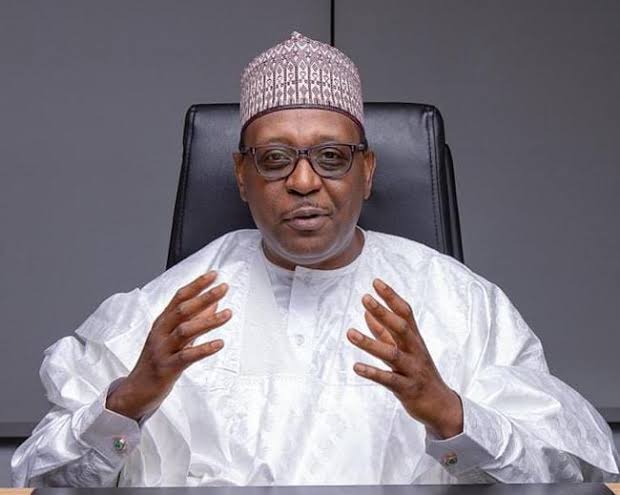Coordinating Minister of Health and Social Welfare Prof. Ali Pate says the enrolment quota of medical schools, nursing schools, and other health conventional schools in Nigeria has increased from 28,000 to 64,000 annually.
Pate disclosed this while giving an account of his stewardship at the Ministerial Sectoral Briefings on the performance of President Bola Tinubu’s administration in one year in Abuja on Friday, May 24, 2024.
The minister added that over 2,400 health workers, doctors, nurses, and midwives were recruited with many of them in rural areas to provide essential services to Nigerians.
He said: “The education sector and the medical schools will have a role too to play to improve the infrastructure and the training tools to produce more health workforce.
“This is because we have to produce even more health workforce so that we can serve the population of this country.”
Pate stated that in one year, the administration was able to complete 201 infrastructure projects in federal hospitals, while 179 specific pieces of important medical equipment were procured.
He added that the medical equipment procured was also distributed by the federal government across the country.
FG earmarks N260bn to revitalise healthcare centres
The minister said: “Over the last nine months, in 33 of our federal tertiary hospitals, 4.5 million Nigerians were able to access outpatient services and 1.6 million Nigerians had inpatient admissions in those 33 facilities.
“So if you extrapolate from the 33 facilities, you would see that about 78 million Nigerians who were ill sought medical services from federal facilities, and about 2.5 million Nigerians who have had in-patient admission in our facilities.”
Pate noted that plans were underway for the groundbreaking ceremony of 10 healthcare infrastructure projects, through the National Sovereign Investment Authority (NSIA), across the six geopolitical zones, including diagnostic centres and oncology centres.
These developments, he said, were part of a broader initiative involving public-private partnerships.
For health insurance, Pate said to expand affordability and financial protection, the federal government was repositioning NHIA to expand insurance coverage for all Nigerians, especially the poor and vulnerable, not excluding civil servants who need deepened coverage.
He added that 1.8 million Nigerians were covered through the Vulnerable Groups Fund at NHIA.
The minister said reforms of the NHIA, to be announced soon, would address areas including expanding private health insurance for informal sector and strengthening the Health Management Organisations.
- 519 bag first class as FUTA graduates 6,405 students - November 23, 2024
- Stock market closes with N99bn loss - November 23, 2024
- Edo govt declares over 200 vehicles missing, recovers diverted palliatives - November 23, 2024










